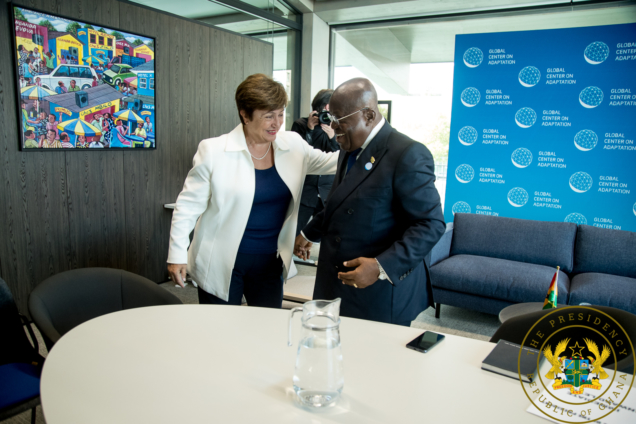Ghana has appealed to the World Bank and the International Monetary Fund (IMF) for concessionary loans to revive the economy as private sector funding dries up.
The facility is a loan made on more favourable terms than the borrower could obtain in the marketplace.
The concessional terms may be one or more of the following: a lower interest rate or deferred repayments.
Interacting with the visiting Director General of the World Trade Organization, President Nana Addo Dankwa Akufo-Addo said the state of Ghana’s economy makes it difficult to go to the capital market to borrow.
He pleaded with the Britton Woods institutions to act in the interest of struggling economies.
Director General of the World Trade Organization (WTO), Dr. Ngozi Okonjo-Iweala says struggling economies, especially those in Africa, must readjust how they have been conducting their affairs.
“But we are also urging at the WTO that we do something we call re-globalisation, that we use this opportunity, if we want to build resilience in certain global supply chains to look at others, other developing countries as possible places where manufacturing can also take place.”
“I think these are some of the things that Ghana should consider, Ghana is a much loved country and I think that your ability to attract investment should be something very important for you to talk to several of these global supply chains to see if they can also consider Ghana as a possible destination,” she advised.
However, Ghana’s move to restructure its local currency and overseas debt has resulted in the first loss on record for two of the nation’s top banks.
Ghana Commercial Bank PLC, the country’s largest lender by assets, posted a 593.4 million cedis net loss for the year to end-December, its first since 1993.
Standard Chartered Bank Ghana Ltd., the biggest by market value, also reported a loss of 297.8 million cedis. According to Joy Business calculations, banks operating in Ghana have taken a hit of about $1.4 billion, as the country restructures most of its public debt, estimated at 576 billion cedis.

